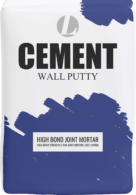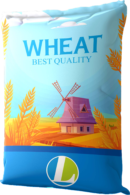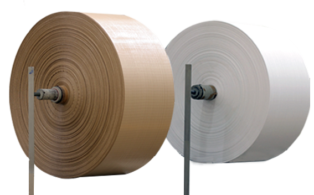
In today’s business environment, the quest for reliable and cost-effective materials is a challenge that many professionals face. Whether you are in charge of packaging, the materials you choose play a crucial role in the success of your operations. You understand that the right solutions can mean the difference between smooth processes.
Among the materials gaining attention in various industries is polypropylene (PP) woven fabric. This innovative fabric has been making waves due to its remarkable strength and adaptability. However, you may wonder: what are PP woven fabrics used for, and how can they enhance your business operations?
In this article, we invite you to explore the diverse applications of PP woven fabrics. We will uncover their unique benefits and demonstrate how they can serve as valuable assets in your industry. By the end of our discussion, you will have a clearer understanding of how these materials can contribute to your organization’s success.
Understanding PP Woven Fabrics
PP woven fabrics are created by interweaving polypropylene strips. This manufacturing process results in a material that combines strength with lightweight properties, making it suitable for a wide range of industrial applications. They are widely recognized for their use in bulk packaging, agriculture, and construction sectors, providing B2B industries with reliable and adaptable materials.
Key Applications in B2B Sectors
1. Packaging Solutions
PP woven fabrics are widely used in the packaging industry, particularly for bulk storage and transportation. These materials are often utilized in the production of:
Industrial storage bags
PP woven bags for granular materials
Protective packaging for large equipment
Woven fabrics used in this sector are valued for their ability to withstand heavy loads, resist tearing, and ensure the secure transportation of goods. According to Statista, the global woven fabric market is projected to reach $26.9 billion by 2027, with packaging being a significant contributor.
2. Agricultural Applications
The agricultural sector benefits from PP woven fabrics in several ways:
Crop storage solutions
Ground covers for weed control
Protective covers for machinery
In agriculture, these fabrics help farmers manage soil erosion, control weeds, and protect crops from harsh weather conditions. What are woven fabrics used for in agriculture? They are primarily used for their breathability, allowing crops to remain fresh during storage.
3. Construction Industry Uses
In construction, PP woven fabrics find application in:
Geotextiles for soil stabilization
Temporary structures and coverings
Debris netting and safety barriers
Due to strength and versatility, woven fabrics are used by the construction sector. Woven PP fabric geotextiles improve soil stability, which makes them inevitable for almost all major construction projects. The geotextiles market was held at a value of $7.1 billion in 2022, and according to Grand View Search estimates, it is bound to grow at an annual growth rate of 6.6%. This is expected to reach a value of $11.82 billion by 2030. The Asia Pacific dominated the market in 2022, with a 54.4% share of the overall revenue.
4. Industrial Utility
Various industries utilize PP woven fabrics for:
Protective covers for equipment
Lining for containers and tanks
Separation and filtration processes
Woven fabric manufacturers provide customized solutions that meet industry-specific requirements. These fabrics are resistant to chemicals and environmental factors, making them ideal for industrial applications such as tank linings and filtration processes.
5. Automotive Industry
In the automotive sector, PP woven fabrics are utilized in various ways. They are commonly used for:
Lining materials in vehicle interiors, add a layer of durability.
Covers for car parts during transportation, ensuring they remain in good condition.
Storage solutions for automotive components, providing efficient and organized handling.
These fabrics offer versatility in automotive applications, assisting in maintaining quality during the storage and transportation of vehicle parts.
6. Industrial Storage and Transport
PP woven fabrics are extensively used for industrial storage and transport purposes. Their adaptability makes them ideal for:
Creating FIBC (Flexible Intermediate Bulk Containers), used to store and transport bulk materials like cement, sand, and grains.
Producing woven tarpaulins that cover goods during transportation, ensuring they stay organized and easy to handle.
The lightweight and durable nature of PP woven fabrics helps businesses streamline their logistics operations, making the handling and transport of goods more efficient.
Advantages for B2B Operations
1. Cost-Effectiveness: These awesome materials offer a balance between durability and affordability, potentially reducing operational costs.
2. Versatility: The adaptability of these fabrics makes them suitable for diverse applications across different industries.
3. Lightweight Properties: The low weight-to-strength ratio contributes to reduced transportation and handling costs, enhancing overall efficiency.
4. Customization Options: Many woven fabric manufacturers offer customization in terms of size, thickness, and weave pattern to meet specific business needs, ensuring that the fabric aligns perfectly with B2B operational requirements.
To Sum Up
PP woven fabrics offer a range of potential benefits for B2B operations across various sectors. By understanding what PP woven fabrics are used for, their applications, and key considerations, businesses can make informed decisions about incorporating these materials into their operations.
At Lincon Polymers Pvt Ltd, we specialize in providing high-quality PP woven fabric solutions tailored to meet the diverse needs of our B2B clients. Our team of experts is ready to assist you in finding the right solution for your specific business requirements. For more information on how PP woven fabrics can benefit your operations, contact our expert team. Let us help you explore how these versatile materials can contribute to your business's efficiency and success.
Our Products
Providing the most versatile and advanced products under one roof in the Woven Industry







